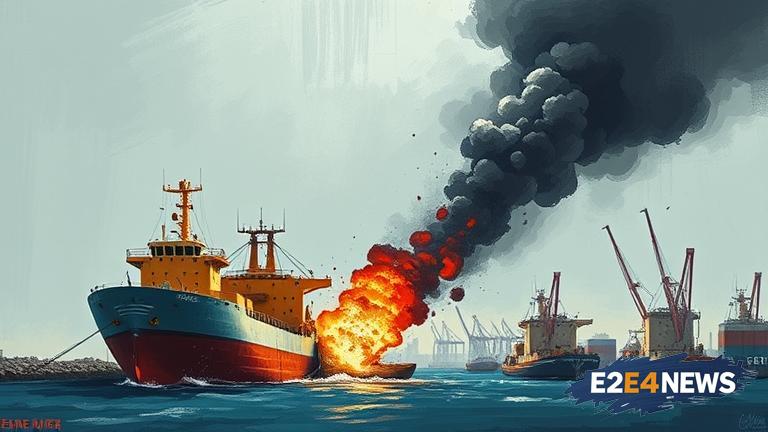The Beirut port blast, which occurred on August 4, 2020, was one of the largest non-nuclear explosions in history, causing widespread destruction and chaos in the Lebanese capital. The blast was triggered by the detonation of a large quantity of ammonium nitrate, which had been stored at the port for years. The explosion killed at least 218 people, injured over 7,000, and left hundreds of thousands homeless. The blast also caused significant damage to the city’s infrastructure, including buildings, roads, and utilities. In the aftermath of the disaster, the Lebanese government faced widespread criticism for its handling of the crisis, with many accusing officials of negligence and corruption. Five years on, the investigation into the blast is still ongoing, with many questions remaining unanswered. Lebanese President Michel Aoun has promised that those responsible for the blast will be held accountable, but many are skeptical about the government’s commitment to justice. The blast has had a profound impact on the people of Lebanon, with many still struggling to come to terms with the trauma and loss they experienced. The country is still reeling from the economic and social consequences of the blast, with many businesses and families struggling to recover. The international community has provided significant support to Lebanon in the aftermath of the blast, but more needs to be done to help the country rebuild and recover. The Lebanese government has established a commission to investigate the blast, but its findings have been slow to emerge. Many have criticized the commission’s work, accusing it of being too slow and too secretive. The blast has also highlighted the need for greater transparency and accountability in Lebanon, with many calling for reforms to the country’s governance and institutions. Despite the challenges, there are signs of hope and resilience in Lebanon, with many individuals and organizations working to rebuild and recover. The Lebanese people are determined to rebuild their country and to hold those responsible for the blast accountable. The international community must continue to support Lebanon in its efforts to recover and rebuild, and to ensure that those responsible for the blast are brought to justice. The Beirut port blast was a devastating tragedy, but it has also brought the Lebanese people together in a shared determination to rebuild and recover. As the country marks the fifth anniversary of the blast, it is clear that there is still much work to be done to ensure justice and accountability for the victims and their families. The Lebanese government must do more to support the victims and their families, and to ensure that those responsible for the blast are held accountable. The international community must also continue to provide support and assistance to Lebanon, to help the country rebuild and recover from this devastating tragedy. In the years since the blast, there have been many developments in the investigation, but many questions remain unanswered. The Lebanese people are still waiting for justice and accountability, and it is imperative that the government and the international community do more to support them. The Beirut port blast was a tragic event that has had a profound impact on the people of Lebanon, and it is essential that we remember the victims and their families, and work towards a future where such a tragedy can never happen again.





